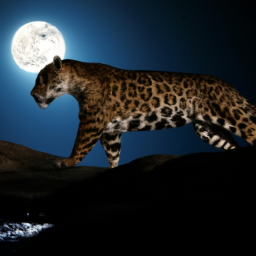
If you’ve ever considered getting an exotic pet, you’ve probably wondered, “What are the best options out there?” Whether you’re looking for a furry companion or a scaly friend, the world of exotic pets offers a variety of unique and fascinating creatures to choose from. From small and low-maintenance animals like hedgehogs or sugar gliders, to larger and more interactive species such as parrots or reptiles, this article will explore some of the best options when it comes to owning an exotic pet. So, if you’re curious about bringing something truly extraordinary into your life, keep reading to discover the best exotic pets worth considering.
Understanding Exotic Pets
Exotic pets are animals that are considered rare or unusual to have as pets, often not found in typical households. These unique creatures can range from small mammals like chinchillas and hedgehogs to reptiles like bearded dragons and tarantulas. Before considering adopting an exotic pet, it is important to understand the definition, regulations, and factors to consider.
Definition of Exotic Pets
Exotic pets are animals that are not commonly kept as pets and are usually found in the wild or in specific regions of the world. They differ from traditional pets like cats and dogs, which have been domesticated for centuries. Exotic pets can add an element of diversity and intrigue to a household, providing a unique and often rare companionship experience.
Regulations for Owning Exotic Pets
Owning an exotic pet comes with its own set of regulations. These regulations vary from country to country and even within different states or regions. It is crucial to familiarize yourself with the local laws and regulations regarding keeping exotic pets. Some jurisdictions may require permits or licenses for ownership, while others may have restrictions on certain species. Taking the time to research and understand these regulations is vital to ensure a legal and responsible ownership experience.
Factors to Consider Before Adopting an Exotic Pet
Adopting an exotic pet is a significant commitment that requires careful consideration. Here are some factors to keep in mind before bringing an exotic pet into your home:
-
Lifestyle: Exotic pets have specific needs and care requirements. Consider your lifestyle and whether you have the time, resources, and dedication to meet these needs. Some exotic pets require specialized habitats, diets, and socialization.
-
Longevity: Many exotic pets have longer lifespans compared to traditional pets. It’s important to consider the long-term commitment and be prepared for the responsibility of caring for your pet well into the future.
-
Financial Considerations: Exotic pets may require special diets, habitats, and veterinary care, which can be more expensive than caring for a traditional pet. Factor in the cost of these additional requirements when considering adopting an exotic pet.
-
Education and Knowledge: Exotic pets often have unique behaviors, dietary needs, and health considerations. Educate yourself on the specific requirements of the species you are interested in and be prepared to continuously expand your knowledge to ensure the well-being of your pet.
By considering these factors, you can ensure that owning an exotic pet is a well-informed decision that aligns with your capabilities and lifestyle.
Advantages and Disadvantages of Having Exotic Pets
Before diving into the specifics of popular exotic pets, it’s important to weigh the advantages and disadvantages of owning these unique companions.
Uniqueness and Rarity
One of the significant advantages of having an exotic pet is the uniqueness and rarity they bring. exotic pets often stand out and can be conversation starters, giving you the opportunity to share your fascinating experience with others.
Learning Opportunities
Owning an exotic pet can be a valuable learning experience, especially for children. It teaches responsibility, empathy, and the importance of understanding and respecting different species. Exploring the specific needs and behaviors of exotic pets can broaden knowledge and appreciation for the animal kingdom.
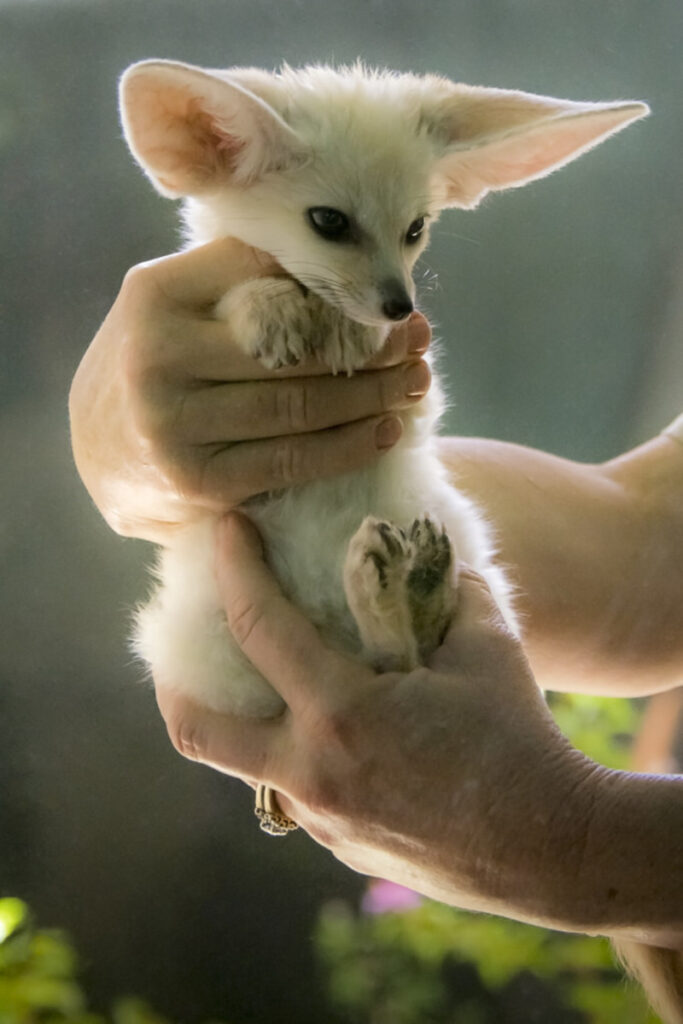
This image is property of images.saymedia-content.com.
Conversation Starters
Exotic pets can act as great conversation starters. Whether it’s a chinchilla or a tarantula, having a unique companion can pique the curiosity of others and provide an opportunity to share interesting facts and stories about your pet.
Potential Health Risks
It’s crucial to acknowledge that owning an exotic pet comes with potential health risks. Some exotic pets may carry zoonotic diseases, which can be transferred to humans. It’s essential to practice good hygiene and take necessary precautions to reduce the risks of disease transmission.
Ongoing Care and Maintenance Requirements
Exotic pets often have specialized care and maintenance requirements that differ from traditional pets. They may need specific diets, habitat setups, and socialization opportunities. Understanding and meeting these ongoing needs can be more challenging and time-consuming than caring for a traditional pet.
Longevity of Some Species
Exotic pets can have significantly longer lifespans compared to traditional pets. While this can be viewed as an advantage, it is important to understand the long-term commitment involved. Be prepared for the potential decades-long relationship and the responsibility that comes with caring for your pet throughout its entire life.
By considering these advantages and disadvantages, you can better decide whether owning an exotic pet aligns with your lifestyle and preferences.
Chinchillas as Exotic Pets
One popular choice for an exotic pet is the chinchilla. Known for their soft fur and playful nature, these small mammals can make fantastic companions.
Characteristics of Chinchillas
Chinchillas are small rodents native to the Andes Mountains in South America. They have dense fur, which serves as protection in their natural habitat. Chinchillas are known for their agility, jumping abilities, and their ability to bathe in dust to keep their fur clean.
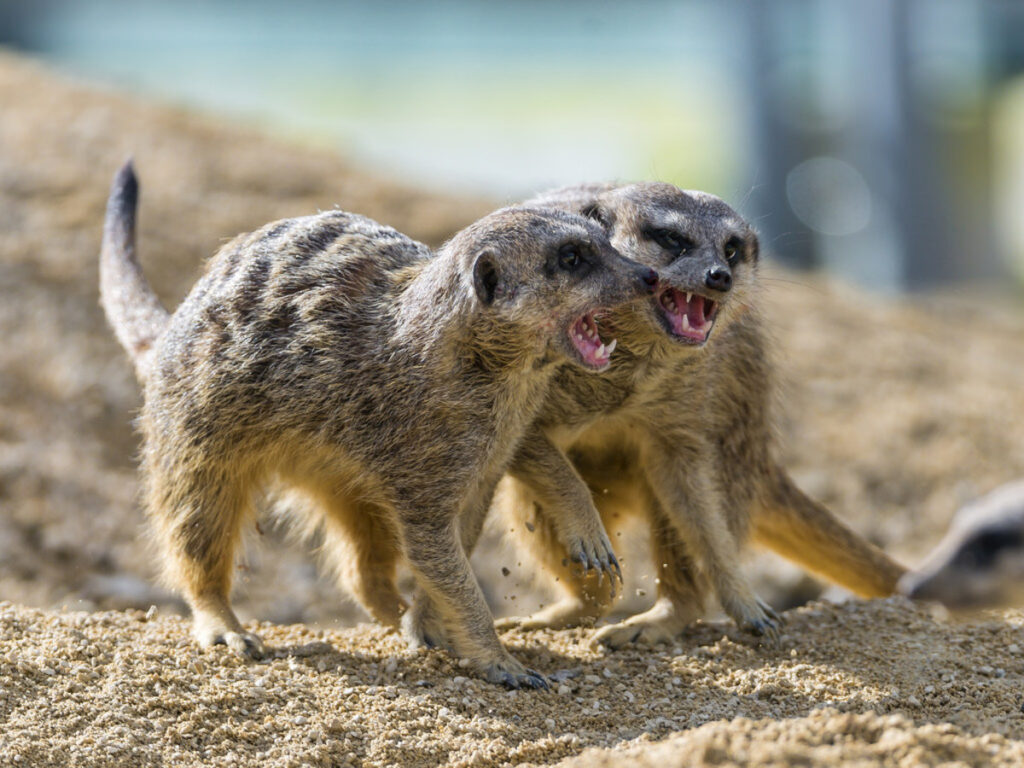
This image is property of images.saymedia-content.com.
Caring for a Chinchilla
Proper care for a chinchilla involves providing a spacious cage or enclosure with plenty of toys and opportunities for exercise. A balanced diet of hay, pellets, and fresh water is essential for their well-being. Regular dust baths should also be provided to help maintain their coat’s health.
Common Health Concerns
Chinchillas are prone to dental problems, so it’s important to provide them with proper chew toys and monitor their teeth. They can also be susceptible to heatstroke, as they are accustomed to cool mountainous environments. Regular veterinary check-ups are crucial for early detection and prevention of health issues.
Life Expectancy and Diet
Chinchillas have a relatively long lifespan, often living up to 10-15 years with proper care. Their diet consists mainly of hay, supplemented with high-quality pellets and occasional treats like fresh fruits and vegetables.
Understanding the characteristics, care requirements, common health concerns, and lifespan of a chinchilla can help you determine if this exotic pet is the right fit for you.
Sugar Gliders as Exotic Pets
Another popular choice for an exotic pet is the sugar glider. These small, nocturnal creatures are known for their gliding abilities and social nature.
Characteristics of Sugar Gliders
Sugar gliders are small marsupials native to Australia, Indonesia, and Papua New Guinea. They have a membrane called a patagium that allows them to glide from tree to tree. Sugar gliders are social animals and thrive in the company of their own kind.
Caring for a Sugar Glider
Proper care for a sugar glider involves providing a safe and spacious cage with plenty of opportunities for exercise and enrichment. A balanced diet of fruits, vegetables, protein, and a specialized sugar glider diet is crucial for their health. Daily social interaction, either with their human caregiver or another sugar glider, is also important for their well-being.
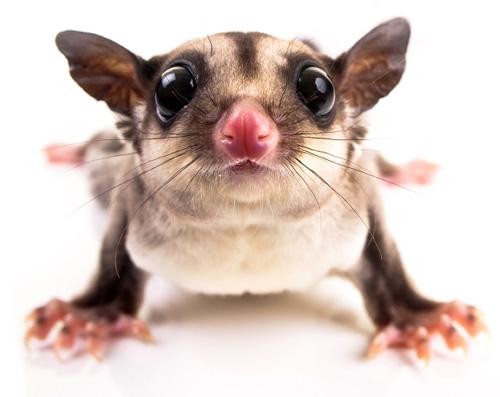
This image is property of www.sheknows.com.
Common Health Concerns
Sugar gliders are prone to dental issues, obesity, and nutritional deficiencies if not provided with a proper diet. Regular veterinary check-ups are necessary to monitor their health and ensure they receive the necessary preventive care.
Life Expectancy and Diet
Sugar gliders have an average lifespan of 10-15 years when cared for properly. Their diet consists of a combination of protein, fresh fruits and vegetables, and a specialized sugar glider diet available commercially.
Understanding the characteristics, care requirements, common health concerns, and lifespan of a sugar glider is essential before considering them as an exotic pet.
Fennec Foxes as Exotic Pets
Fennec foxes are small mammals known for their distinctive large ears and playful personalities. They are a unique choice for an exotic pet but require specific care.
Characteristics of Fennec Foxes
Fennec foxes are native to the Sahara Desert in North Africa. They have adapted to the desert environment by having large ears that help dissipate heat. Fennec foxes are highly social animals, known for their curious and playful nature.
Caring for a Fennec Fox
Proper care for a fennec fox involves providing a large, secure enclosure with opportunities for exercise and enrichment. Their diet should consist of a balanced mix of high-quality cat food, insects, fruits, and vegetables. It’s important to provide regular mental and physical stimulation to prevent boredom.
Common Health Concerns
Fennec foxes can be prone to dental issues, obesity, and metabolic bone disease. Regular veterinary check-ups and a proper diet are essential for their overall health and well-being.
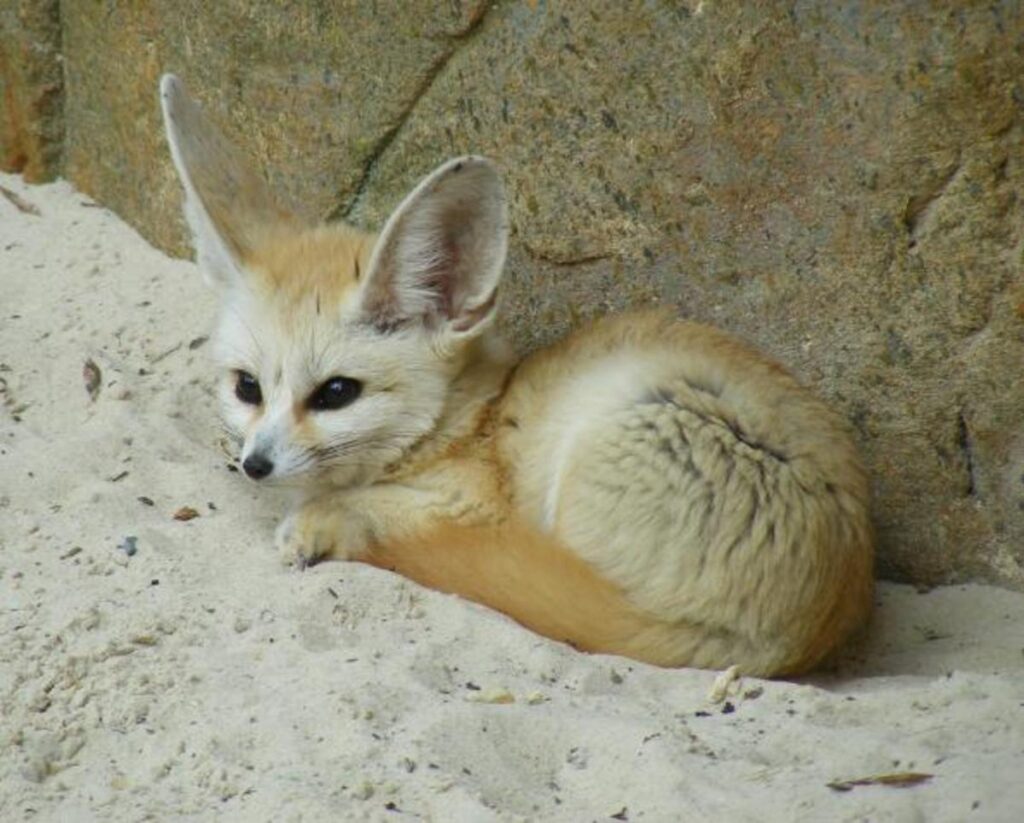
This image is property of images.saymedia-content.com.
Life Expectancy and Diet
Fennec foxes have an average lifespan of 10-14 years in captivity when provided with proper care. Their diet should primarily consist of a high-quality commercial cat food supplemented with insects, fruits, and vegetables.
Understanding the characteristics, care requirements, common health concerns, and lifespan of a fennec fox is crucial before considering them as an exotic pet.
Hedgehogs as Exotic Pets
Hedgehogs, with their unique spines and adorable faces, have gained popularity as exotic pets. However, they require specific care to thrive in a domestic setting.
Characteristics of Hedgehogs
Hedgehogs are small nocturnal mammals known for their defensive mechanism of rolling into a spiky ball. They have a relatively long lifespan and are solitary creatures. Hedgehogs are primarily insectivores and have specific dietary requirements.
Caring for a Hedgehog
Proper care for a hedgehog involves providing a spacious and secure enclosure with hiding places and opportunities for exercise. Their diet should consist of high-quality dry cat food supplemented with insects, fruits, and vegetables. Regular interaction and socialization are also important for their well-being.
Common Health Concerns
Hedgehogs can be prone to dental issues, obesity, and dry skin. It’s important to monitor their weight, provide regular dental care, and ensure a suitable humidity level in their environment. Regular veterinary check-ups are necessary to catch and treat any health issues early.
Life Expectancy and Diet
Hedgehogs have an average lifespan of 4-6 years in captivity when provided with proper care. Their diet should mainly consist of high-quality dry cat food specifically formulated for hedgehogs, supplemented with insects, fruits, and vegetables.
Understanding the characteristics, care requirements, common health concerns, and lifespan of a hedgehog is crucial before considering them as an exotic pet.
Tarantulas as Exotic Pets
For those with an interest in the arachnid world, tarantulas make unique and fascinating exotic pets. While they may evoke fear in some, tarantulas have their own appeal and can be quite captivating creatures.
This image is property of i.insider.com.
Characteristics of Tarantulas
Tarantulas are large, hairy spiders found in various regions around the world. They have eight legs and can come in a variety of colors and patterns. Tarantulas are generally nocturnal and solitary animals, preferring to live in dark and humid environments.
Caring for a Tarantula
Proper care for a tarantula involves providing a suitable enclosure with the necessary hiding spots and a substrate that mimics their natural habitat. They require a diet consisting of live insects, such as crickets and roaches, which should be provided regularly. Maintaining appropriate temperature and humidity levels is crucial to their health.
Common Health Concerns
Tarantulas can be susceptible to molting issues, dehydration, and external parasites. Ensuring they have access to clean water, appropriate humidity, and a stress-free environment can help prevent these health concerns. Regular observation and being attentive to any abnormal behaviors or physical changes in your pet are vital.
Life Expectancy and Diet
The lifespan of a tarantula varies depending on the species, ranging from several years to several decades. Their diet consists primarily of live insects, such as crickets, roaches, and occasionally larger prey like mice.
Understanding the characteristics, care requirements, common health concerns, and lifespan of a tarantula is essential before considering them as an exotic pet.
Bearded Dragons as Exotic Pets
Bearded dragons have gained popularity as exotic pets due to their unique appearance and docile nature. They make excellent reptile companions for those willing to provide the necessary care.
Characteristics of Bearded Dragons
Bearded dragons are native to the arid regions of Australia. They have a distinctive spiky appearance, with a beard-like flap of skin under their chin. Bearded dragons are diurnal and are known for their relatively calm and tolerant temperament.
Caring for a Bearded Dragon
Proper care for a bearded dragon involves providing a suitable enclosure with specific temperature gradients and UV lighting. Their diet should consist of a variety of insects and leafy greens, with proper supplementation. Regular handling and socialization are crucial to their overall well-being.
Common Health Concerns
Bearded dragons can be prone to metabolic bone disease, respiratory infections, and impaction if not provided with appropriate care. A proper diet, UV lighting, and maintaining a clean habitat are essential for their health. Regular veterinary check-ups are important to catch and treat any potential health issues.
Life Expectancy and Diet
Bearded dragons have an average lifespan of 8-12 years, but with exceptional care, they can live up to 15 years or more. Their diet consists of a combination of insects, leafy greens, and occasional fruits.
Understanding the characteristics, care requirements, common health concerns, and lifespan of a bearded dragon is crucial before considering them as an exotic pet.
Axolotls as Exotic Pets
Axolotls, also known as Mexican walking fish, are unique aquatic creatures that have gained popularity as exotic pets. They require specialized care to thrive in home aquariums.
Characteristics of Axolotls
Axolotls are amphibians native to Mexico. Unlike most amphibians, they retain their juvenile characteristics into adulthood, including external gills and the ability to regenerate body parts. Axolotls are primarily aquatic and known for their bright colors and unique appearance.
Caring for an Axolotl
Proper care for an axolotl involves providing a suitable tank setup with clean and conditioned water. They require cooler water temperatures and specific water parameters to thrive. A diet consisting of live or frozen foods, such as bloodworms and brine shrimp, should be provided regularly.
Common Health Concerns
Axolotls can be prone to fungal infections, bacterial infections, and stress-related issues if their water conditions are not maintained properly. Regular water quality testing, partial water changes, and minimizing stressors in their environment are crucial to their health.
Life Expectancy and Diet
Axolotls have an average lifespan of 10-15 years when cared for properly. Their diet mainly consists of live or frozen foods, such as bloodworms and brine shrimp, with occasional supplementation of earthworms or other small aquatic prey.
Understanding the characteristics, care requirements, common health concerns, and lifespan of an axolotl is essential before considering them as an exotic pet.
Finding Exotic Pets
Finding the right exotic pet requires careful research, considering the animal’s specific needs, and ensuring a reputable source for adoption or purchase.
Exotic Pet Trade Regulations
Before acquiring an exotic pet, it is crucial to understand the regulations surrounding the exotic pet trade. Some exotic pets may be protected, endangered, or illegal to own in certain jurisdictions. Familiarize yourself with the laws and regulations to ensure you are acquiring your pet legally.
Finding a Reputable Breeder or Rescue
When looking for an exotic pet, it is important to find a reputable breeder or rescue organization. Research breeders or rescues with positive reviews and a focus on responsible breeding practices or ethical rescuing. Ensure that the animals are well cared for, socialized, and free from any health issues before purchasing or adopting.
Understanding Adoption Commitments
Adopting an exotic pet comes with a commitment to their long-term care and well-being. Understand the responsibilities involved, including ongoing veterinary care, dietary needs, and environmental requirements. Ensure that you are ready to provide the necessary commitment before bringing an exotic pet into your home.
Preparing for Your Exotic Pet
Before bringing an exotic pet home, it is essential to prepare a suitable habitat, gather the required supplies, and educate yourself on their specific care needs. Create a safe and enriched environment that meets their physical and behavioral requirements. This can include researching suitable enclosures, providing the necessary heating or lighting equipment, and preparing an appropriate diet.
By understanding the regulations, finding a reputable source, and adequately preparing for your exotic pet’s arrival, you can ensure a smooth transition and a rewarding experience for both you and your new companion.
In conclusion, owning an exotic pet can be a thrilling and fulfilling experience, but it requires careful consideration and responsible ownership. Understanding the definition, regulations, factors to consider, and the unique characteristics and care requirements of specific exotic pets is crucial before embarking on this journey. By making an informed decision and providing the necessary care, you can create a loving and enriching environment for your exotic pet.






